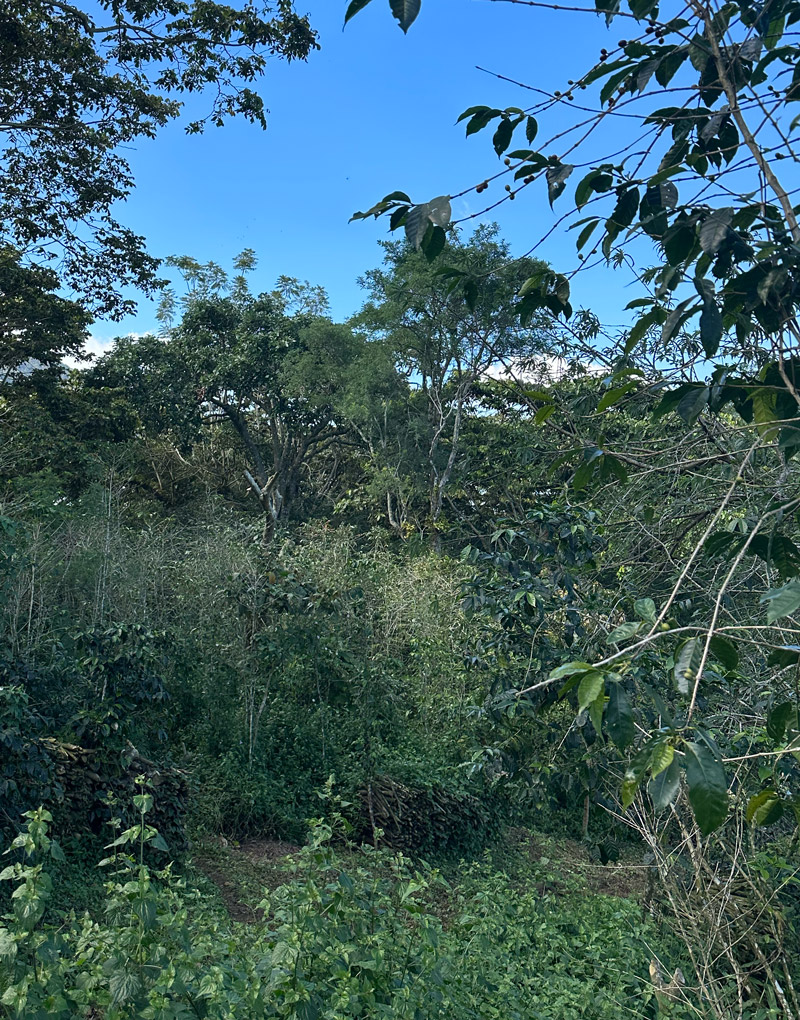El Salvador - Buenos Aires
Why the Buenos Aires region?
El Salvador & especially the Buenos Aires region at the Santa Ana volcano offers perfect climatic conditions for the cultivation of high quality coffees & specialty coffees – but unfortunately there are numerous abandoned coffee farms & potentials are not exploited! With our Coffee School project we want to help the people of the Buenos Aires region in El Salvador & teach them about sustainable farming free of chemical substances!
The problems of the region!
Due to leaf rust in 2013 & 2014, numerous coffee plants died. Furthermore, there are numerous shady middlemen who depress the prices. In addition, a high crime rate ensures that there is little tourism, which is why there is little foreign income in the interior of the country. This led many smallholders to abandon their coffee farms or to grow other crops or switch to livestock. A few coffee farmers remained, but these mostly work with outdated techniques in coffee cultivation & processing of coffee cherries. Therefore, only small quantities remain annually for the trade, from which the coffee farmers can just about finance their survival.
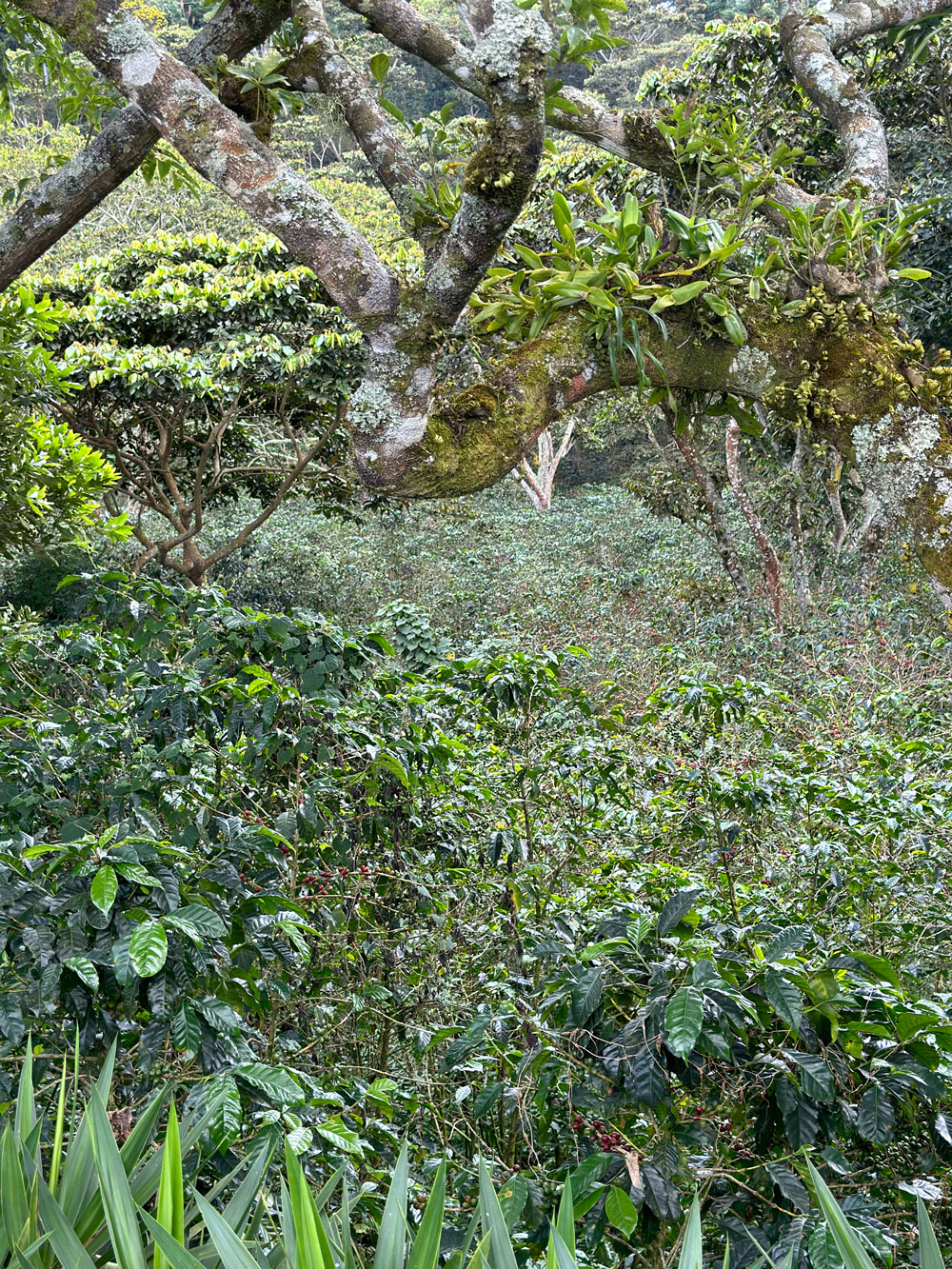
Overgrown & abandoned coffee farms – no agriculture has been practiced here for years!
Abandoned farms & sprawling plantations
We want to create a solution for the region!
Green coffee from the Buenos Aires region in El Salvador!
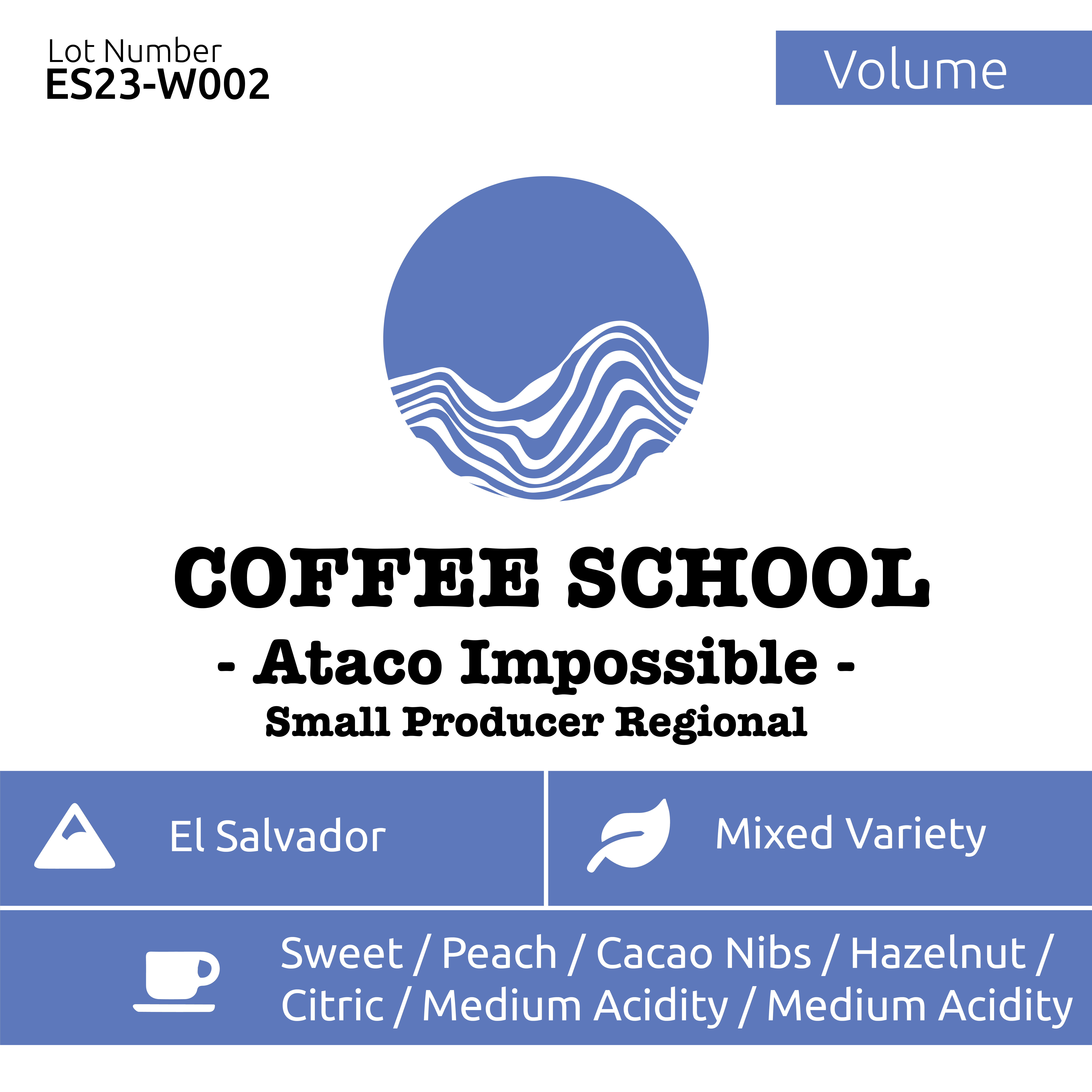
Ataco Impossible – Small Producer Regional
Our Ataco Impossible is a project coffee of the Coffee School Project. We have united smaller farmers in the region & created a blend that
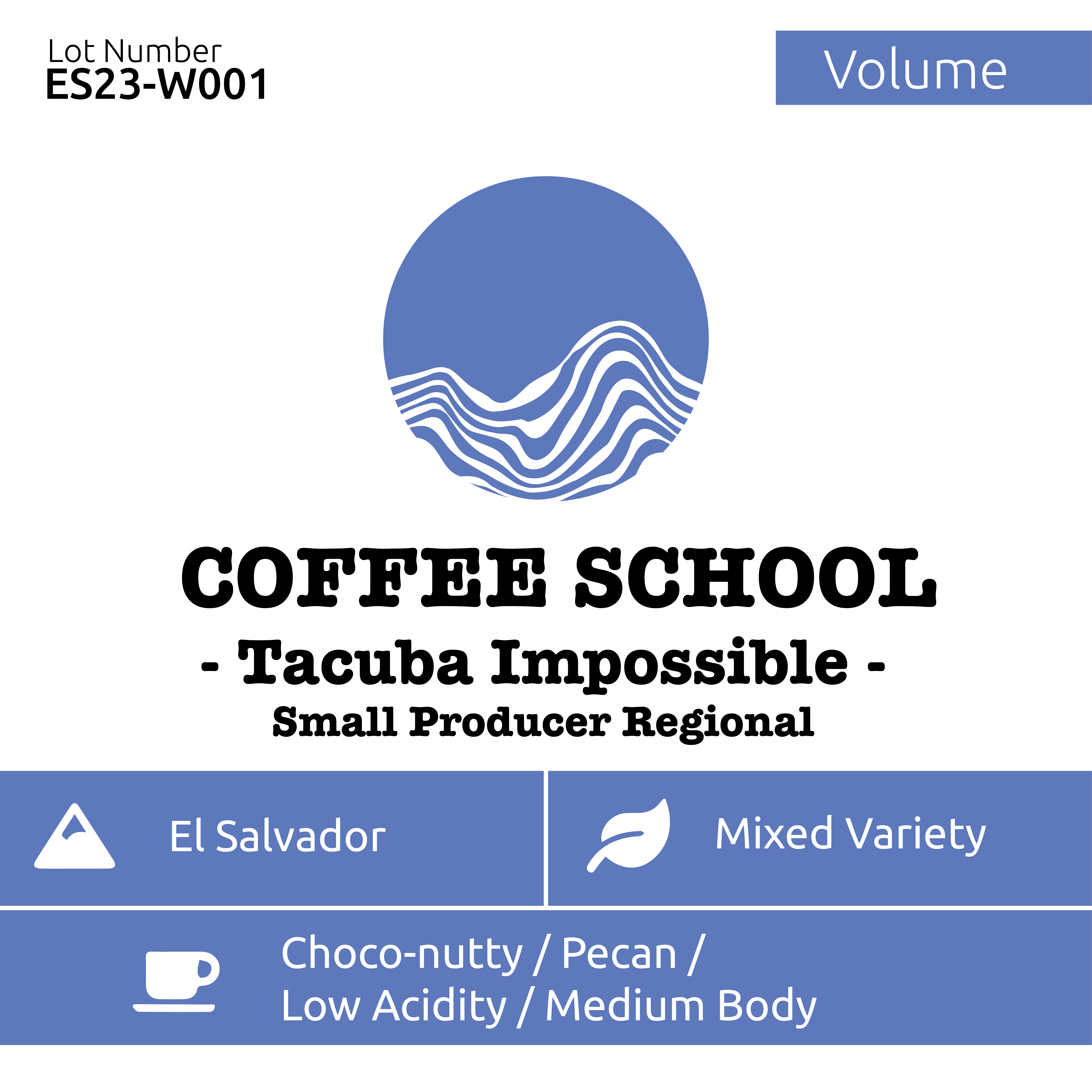
Tacuba Impossible – Small Producer Regional
Our Tacuba Impossible is a project coffee of the Coffee School Project. We’ve united smaller farmers in the region & created a blend that impresses
The problems of the region in detail!
1 - The cultivation of the coffee plants
Most of the smaller coffee farmers take care of the cultivation & processing of their green coffee completely by themselves. In doing so, they use outdated techniques & have neither the facilities nor access to modern techniques of coffee cultivation & processing. Outdated depulpers, lack of shade management and mishandling of soil & nature – because to ensure consistent quality & lasting harvests, chemical substances are used. As a result, not only the quality of coffee cherries suffers, but the nutrients of the soil are destroyed in the long term.
2 - Prices for coffee cherries & processed green coffee
The few coffee farmers who remain in the region & strive to grow coffee have no access to international markets. Thus, they have little choice but to sell the coffee at market prices at the port to ensure their survival and thus create their livelihood at all. In addition, smallholders rely on middlemen to sell their green coffee around the world. These turn out to be mostly shady & driven only by money. So promises & price agreements are made that are never kept. These traders try to take advantage of the market situation & buy a high quality green coffee far below value – for the most part, these traders don’t care about the people of the region.
3 - Leaf rust & the treatment of nature
In 2013 & 2014, numerous coffee plants were affected by leaf rust & died. This was a turning point for many small farmers, who until then had earned their living by cultivating coffee plants. They focused on other crops & livestock from then on, or left the region completely. As a result, numerous abandoned coffee farms & rampant coffee plants were now left behind. Still others started growing other crops such as corn. The cultivation of these monocultures deprives the soil of important nutrients & destroys the balance of the nature in the long term. After only a few years of cultivation, all that remains are nutrient-poor, barren areas.
This is how we want to help!
Our Coffee School Project for the Buenos Aires region in El Salvador!
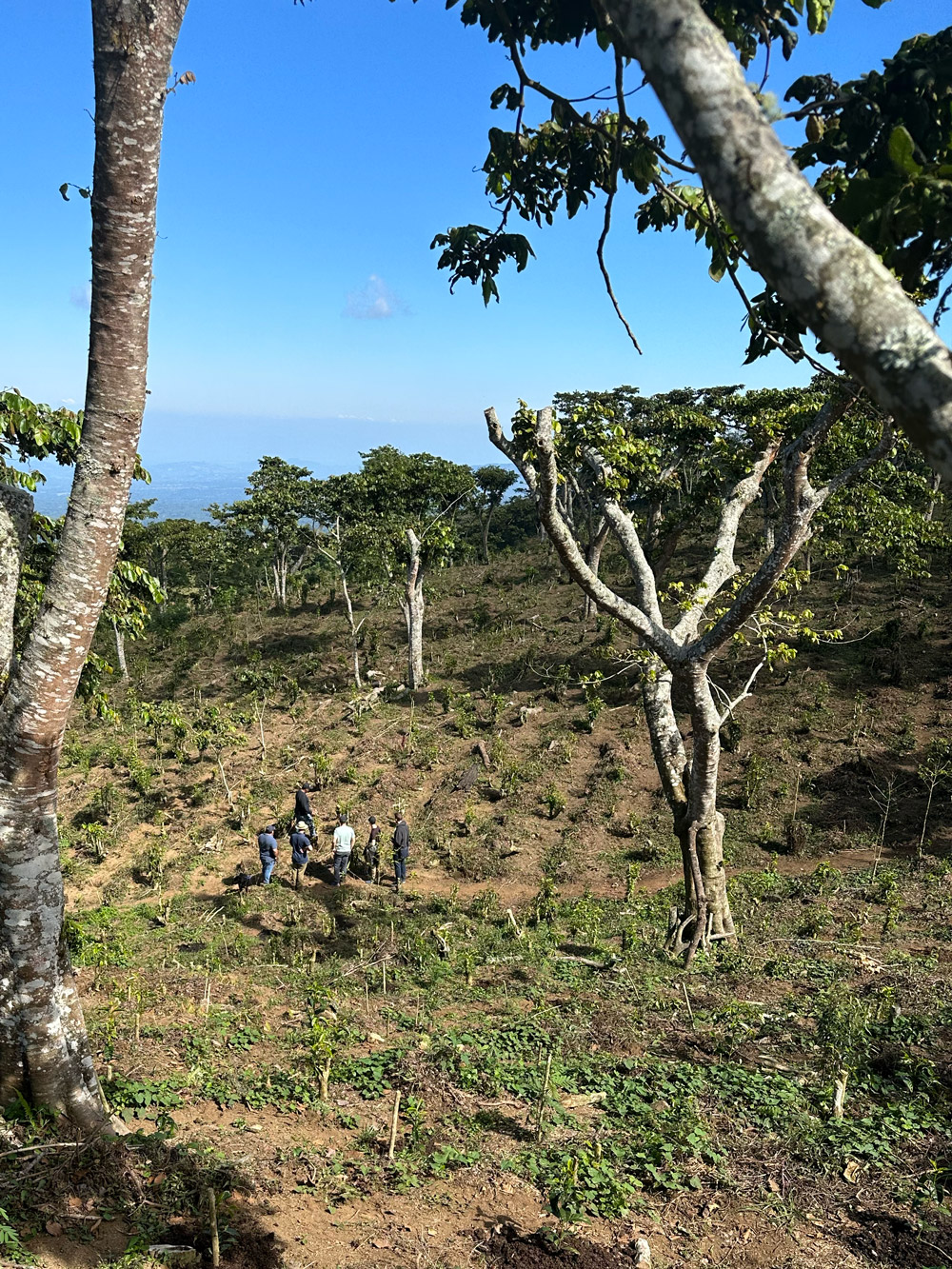
Building a coffee farm & creating a coffee community in the Buenos Aires region of El Salvador.
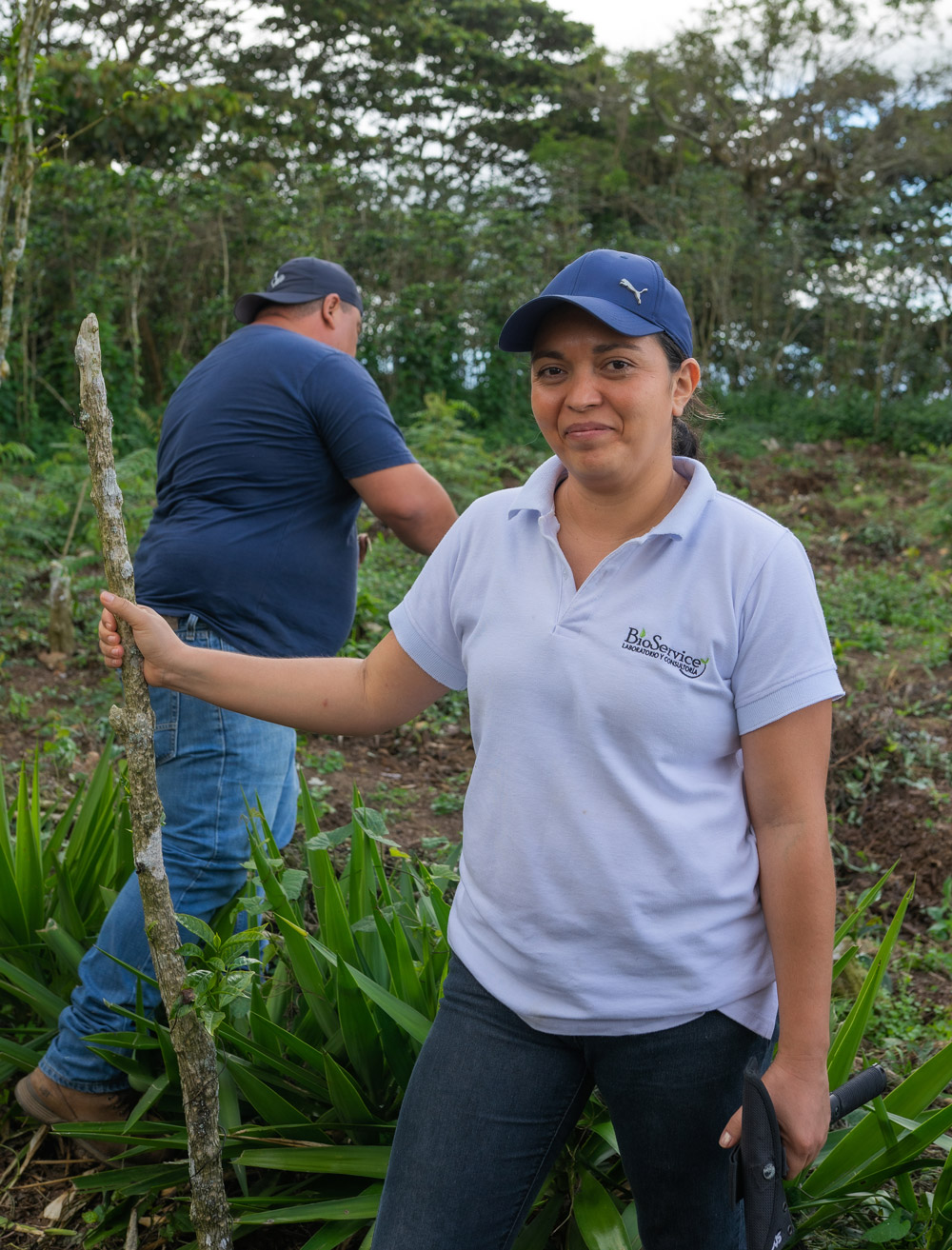
With our Coffee School Project we want to rebuild the coffee region Buenos Aires in El Salvador together with coffee farmers & coffee roasters, unite farmers & promote the development of a coffee community for the local smallholders.
A solution for the region - the Coffee School Project!
With our Coffee School Project we want to rebuild the coffee region Buenos Aires in El Salvador together with coffee farmers & coffee roasters, unite farmers & promote the development of a coffee community for the local smallholders.
The construction of a coffee farm
By building our own coffee farm, we create a place for common exchange & transparency between coffee farmers & coffee roasters. Proceeds from both parts of the Coffee School Project will go towards building community & coffee farmers in the Buenos Aires region of El Salvador.
We bought one of these abandoned coffee farms & are now in the process of building it. This farm will serve for trainings & seminars for both local coffee farmers and coffee roasters from all over the world. In this way, we create a place where coffee roasters can get to know their coffee farmers – direct, fair, sustainable & transparent!
The employees of our coffee farm
We have our employees for the coffee farm permanently employed year-round & pay a wage, well above the national average level.
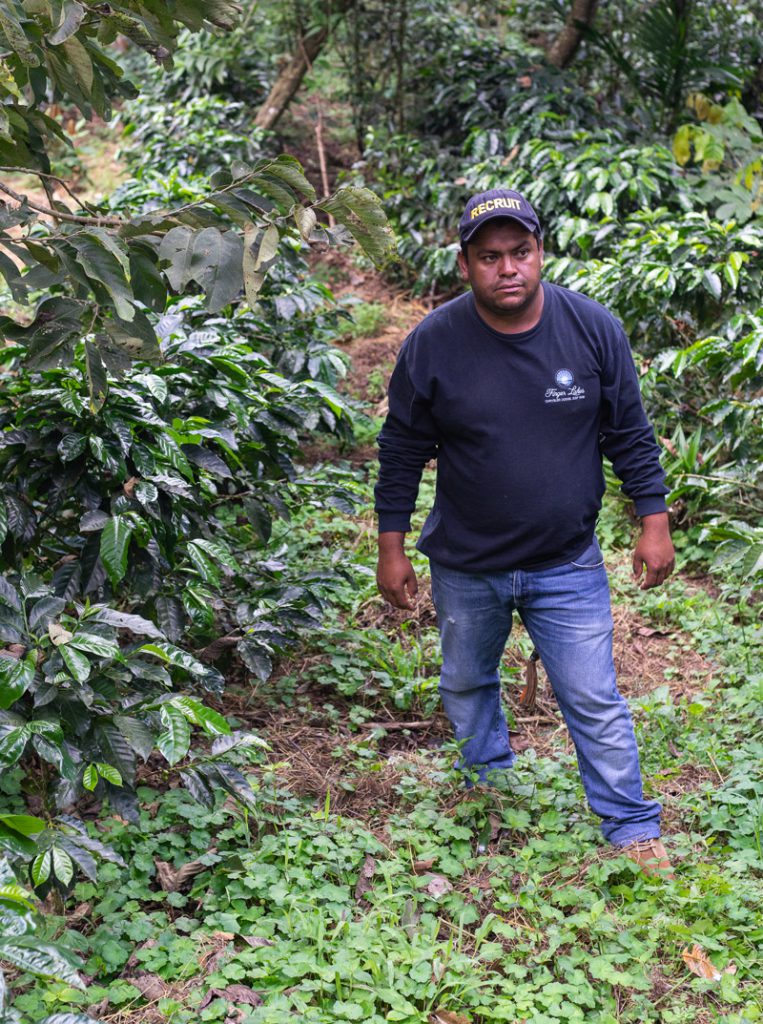
Adalberto is the permanent farm manager of our coffee farm in the Buenos Aires region of El Salvador!
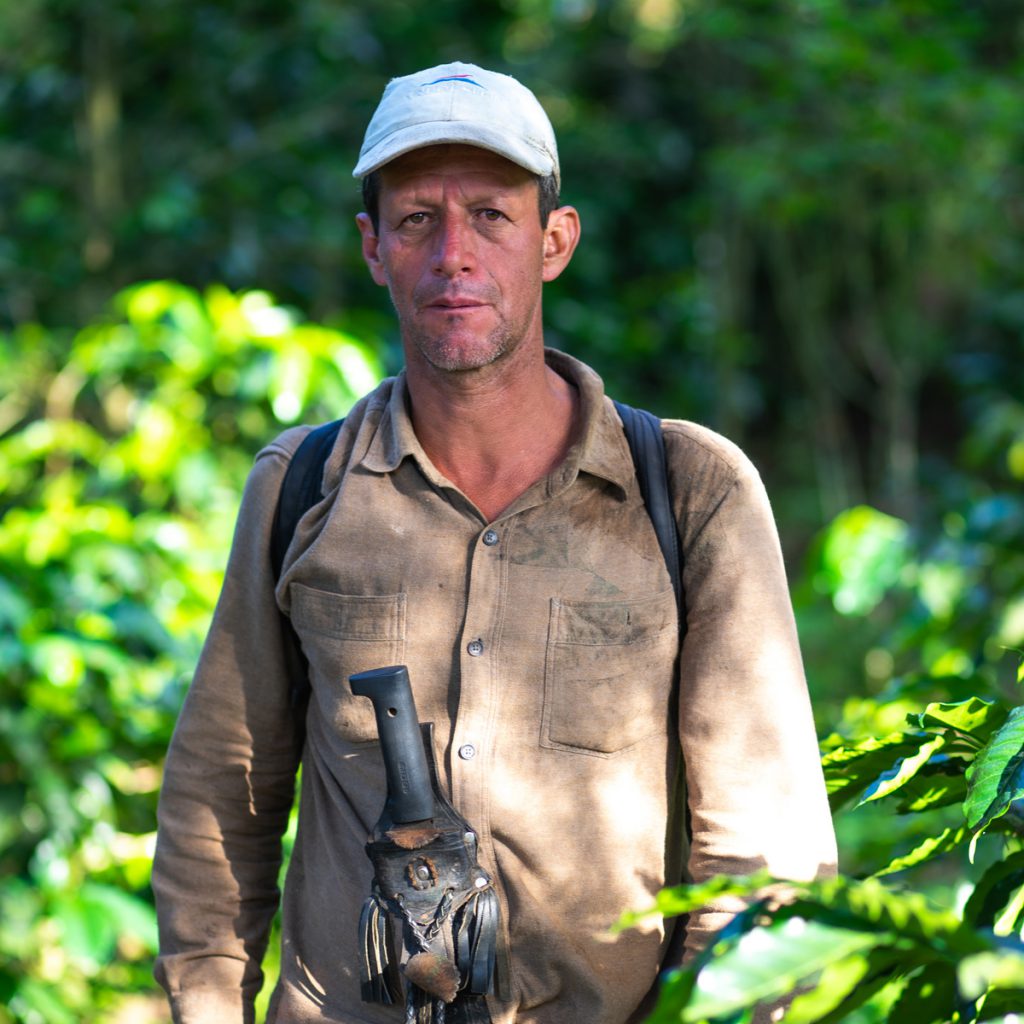
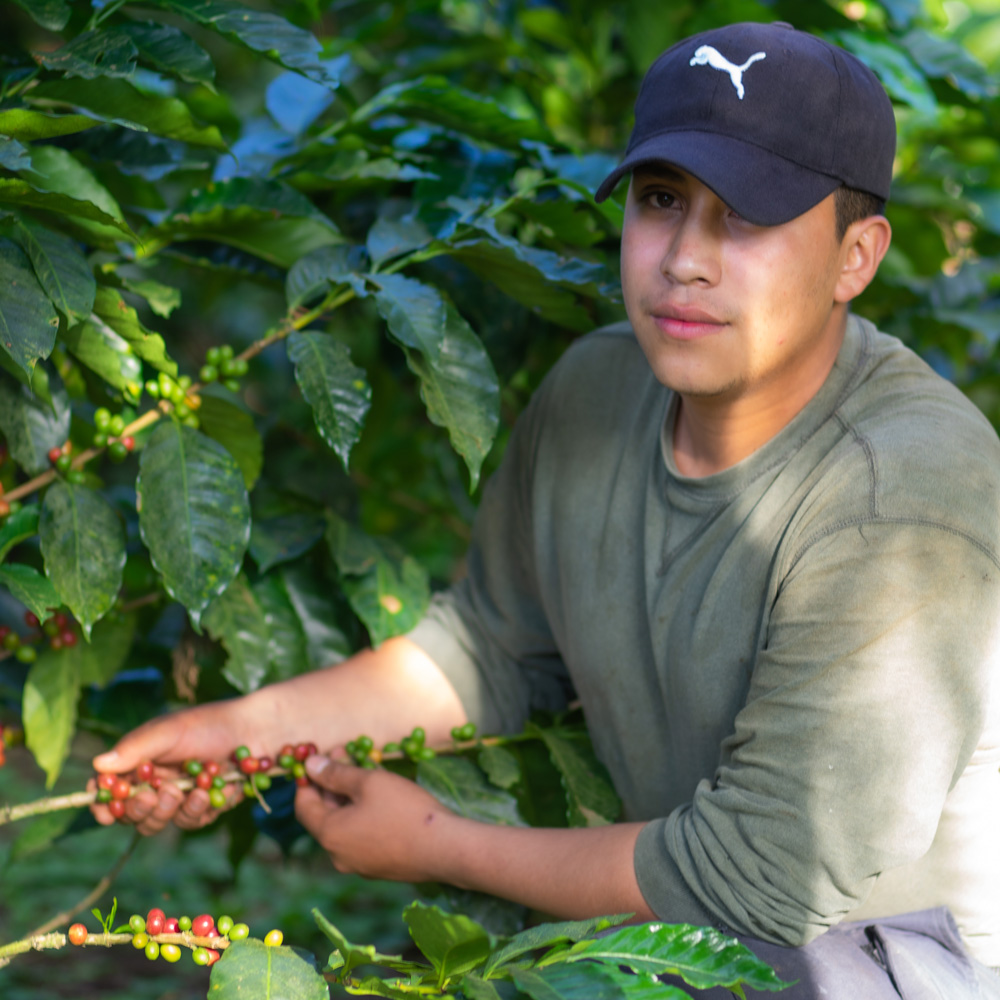
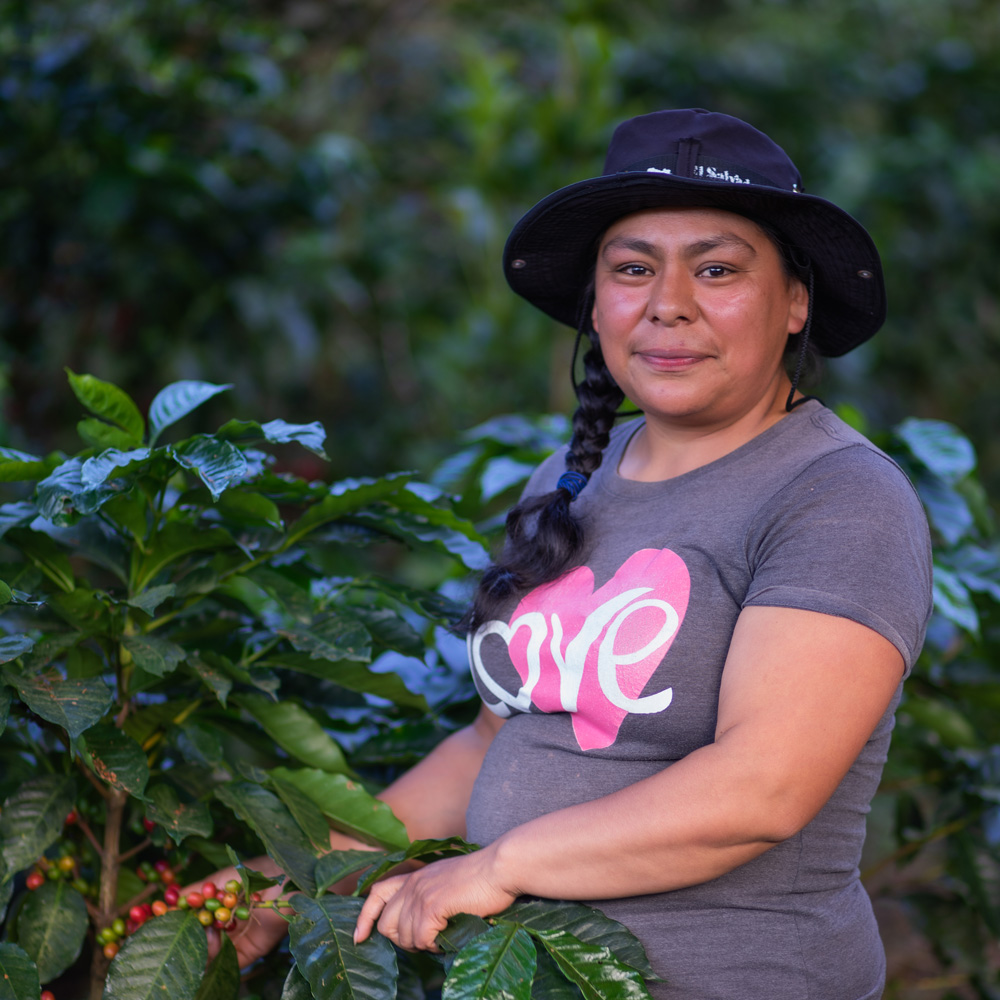
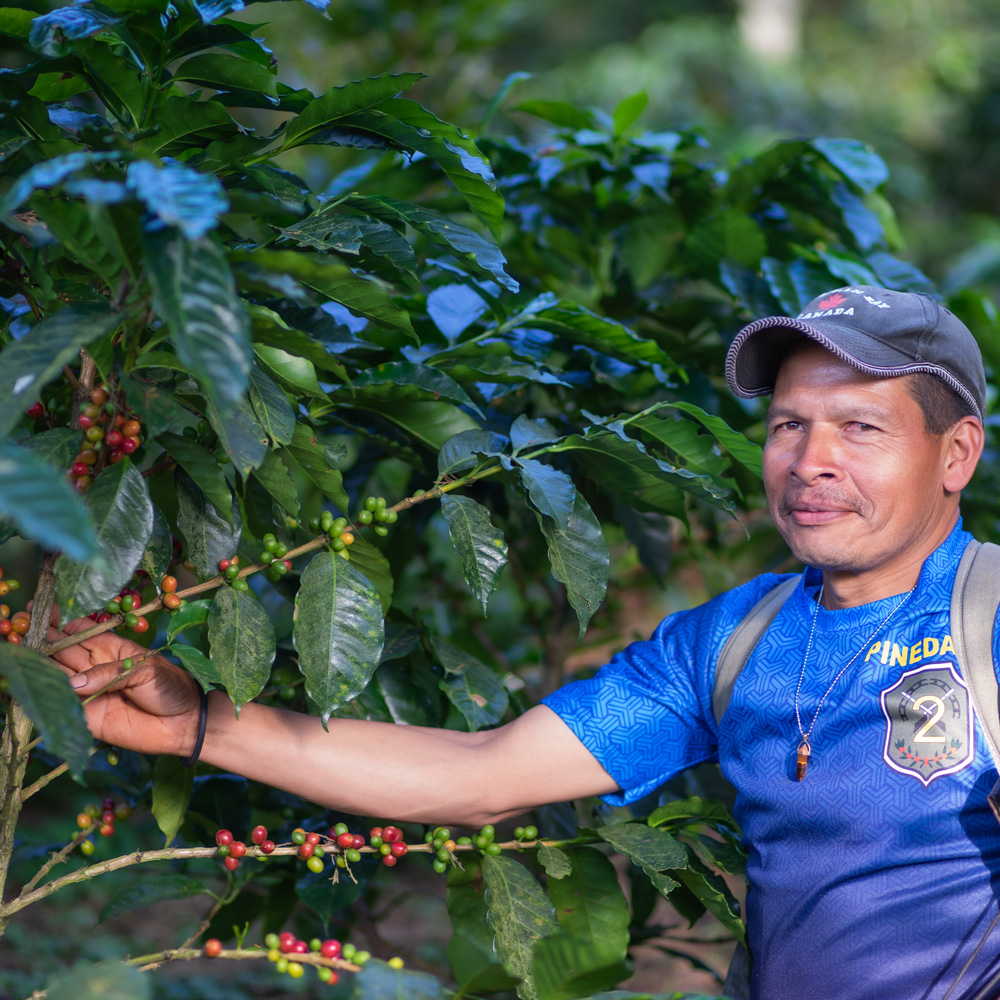
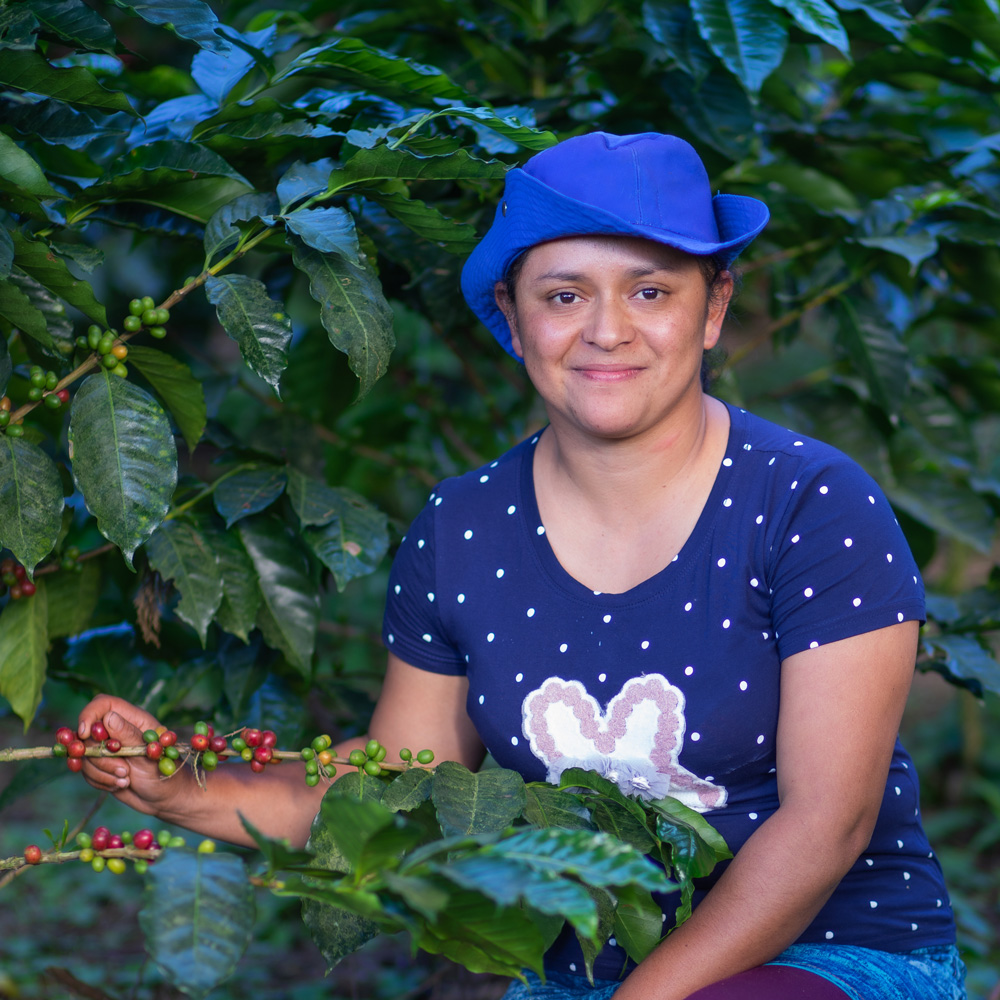
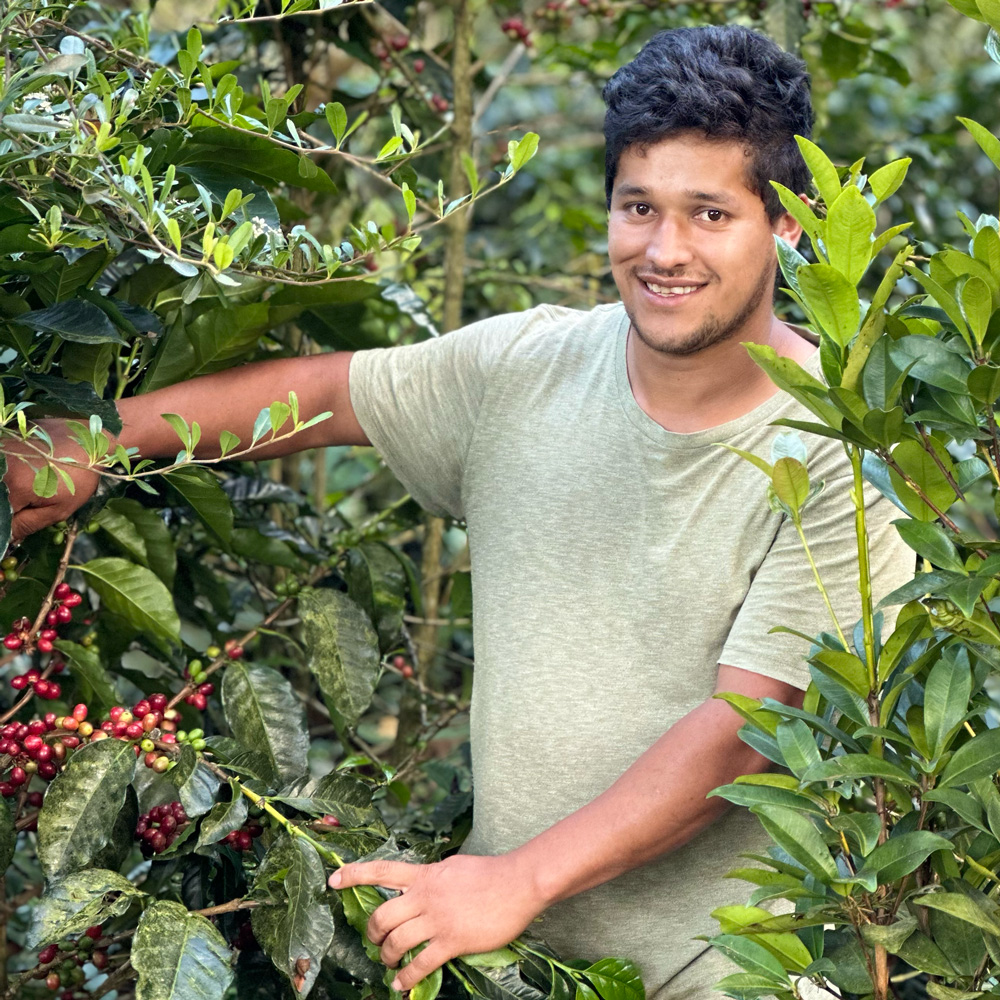
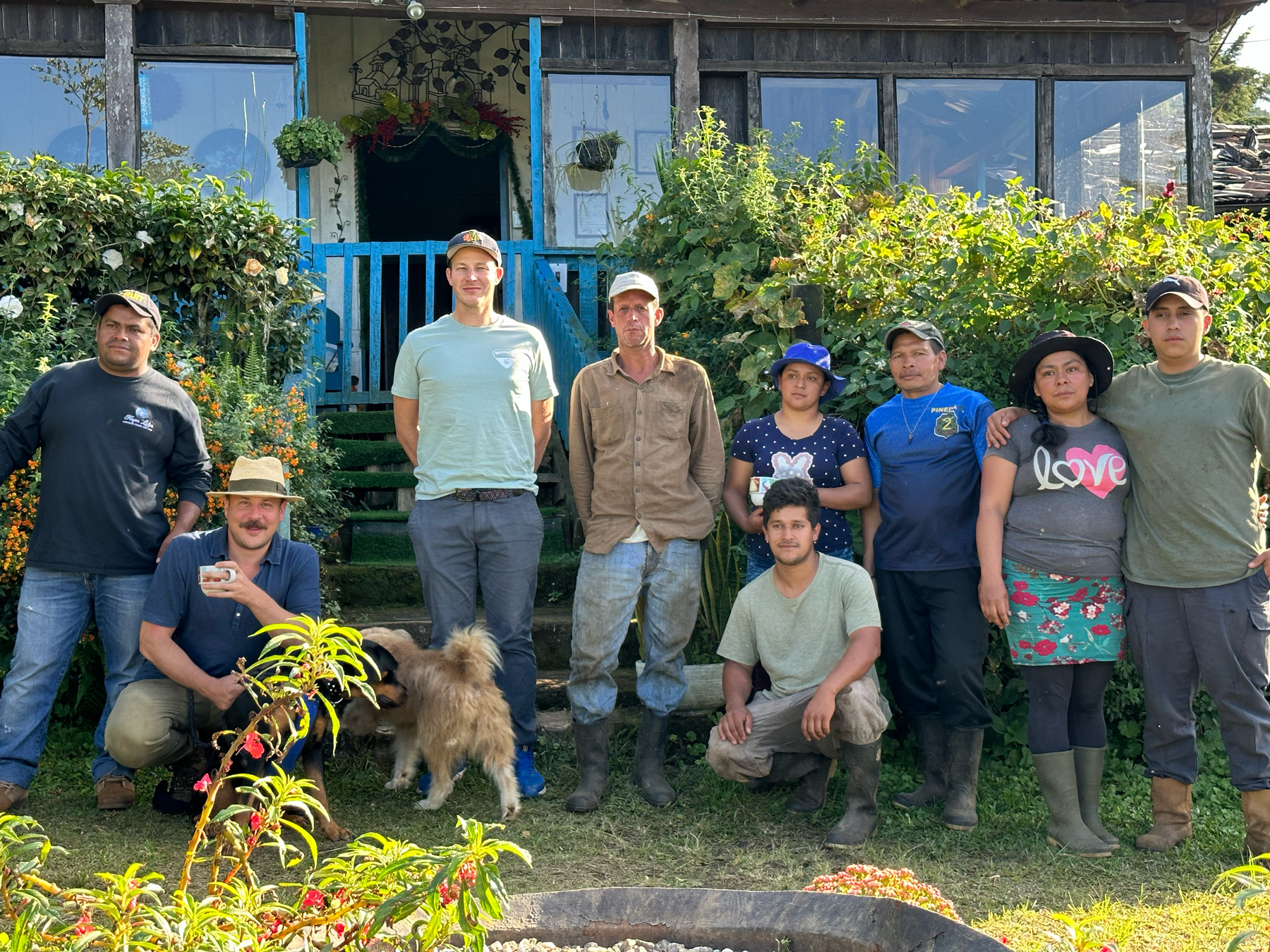
How we support & help the Buenos Aires region in El Salvador
We want to create a close connection between the coffee farmers & the coffee roasters who refine the high quality & sustainable green coffee. This is intended to create transparency in our value chain, which forms the basis for long-term & sustainable growth. Our coffee farm is the central location of our Coffee School Project.
1 - Building a Coffee Community in the Buenos Aires Region
We want to create a coffee community in the Buenos Aires region where coffee farmers are fairly compensated for their high quality coffee. Therefore we support the coffee farmers in the cultivation, harvesting, processing & selling of their coffee. We want to strengthen the region & create a better standard of living for coffee farmers & their families through the cultivation of coffee. In this community, a common exchange between farmers shall take place & form the basis for a common growth.
2 - Trainings & Seminars for Coffee Farmers & Coffee Roasters
We conduct seminars with coffee farmers to show them modern coffee farming techniques & focus on sustainable farming. We teach coffee farmers in the region to rely on natural fertilizers & pesticides and grow coffee plants in harmony with nature. We also support them in converting their coffee farm from chemical substances to organic coffee cultivation.
We also want to offer seminars for coffee roasters in the Buenos Aires region. These are to learn the basic knowledge of organic coffee farming, be able to understand the problems faced by coffee farmers & naturally get to know the coffee farmers from whom they source their green coffee.
This is not only to map transparency, but to create a real relationship & platform for joint exchange between coffee farmer & coffee roaster.
3 - Financial support & direct aid for coffee farms
In addition to fair payment for their high-quality coffee, we are committed to using a portion of the profits generated to support the community that has been created in the Buenos Aires region. These can be direct aid in the form of water catchment basins, water filters or solar panels, but also support for the local school for the education of the children of the region.
Trainings & Seminars
We want to impart knowledge to create sustainable & long-term oriented added value for coffee farmers & coffee roasters!
Organic Farming
We use organic coffee farming to work in harmony with people & nature to achieve better coffee quality!
Exchange & transparency
We create real relationships between coffee farmers & coffee roasters - Our coffee farm serves as a meeting place!
Chemistry vs Organic
That is why organic coffee cultivation is particularly close to our hearts!
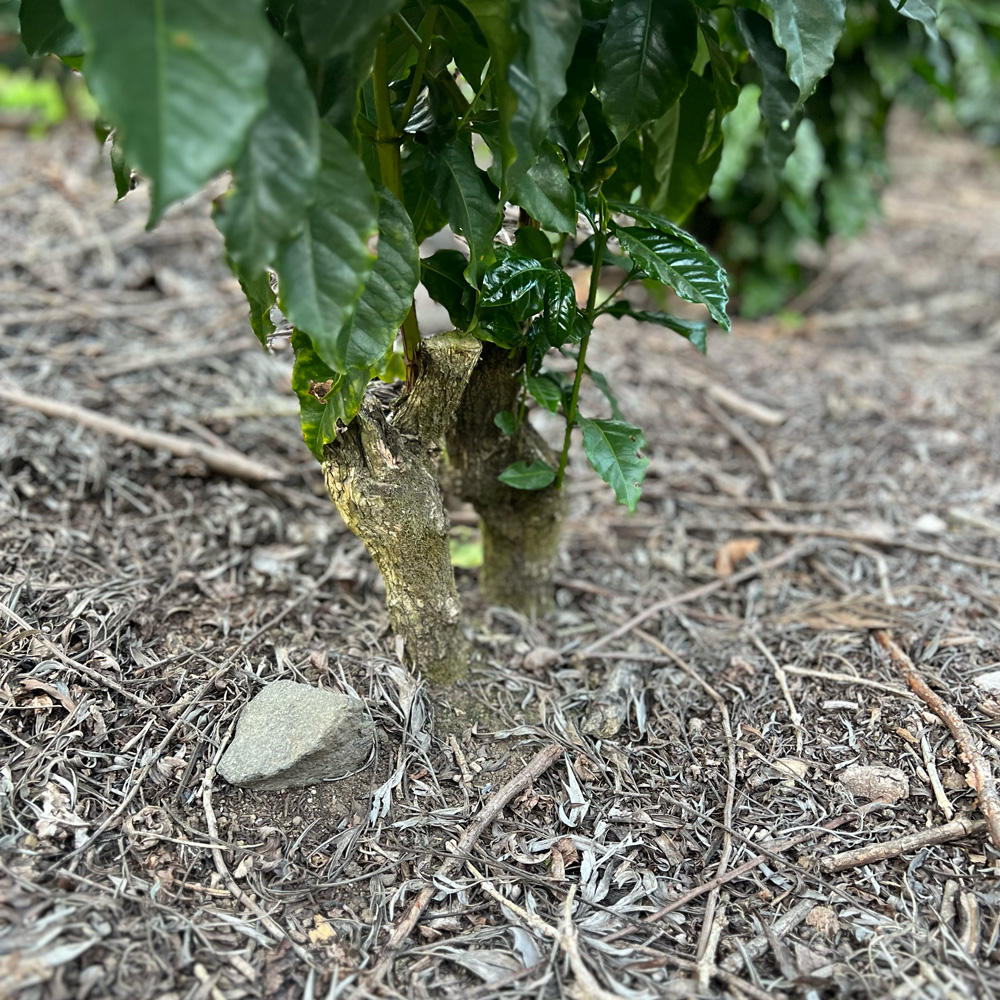
Chemical coffee cultivation
The condition of the soil under the use of chemical fertilizers & pesticides! Almost all other plants, living creatures & organic matter are driven out or destroyed - a kind of monoculture is created, which damages the soil in the long term.
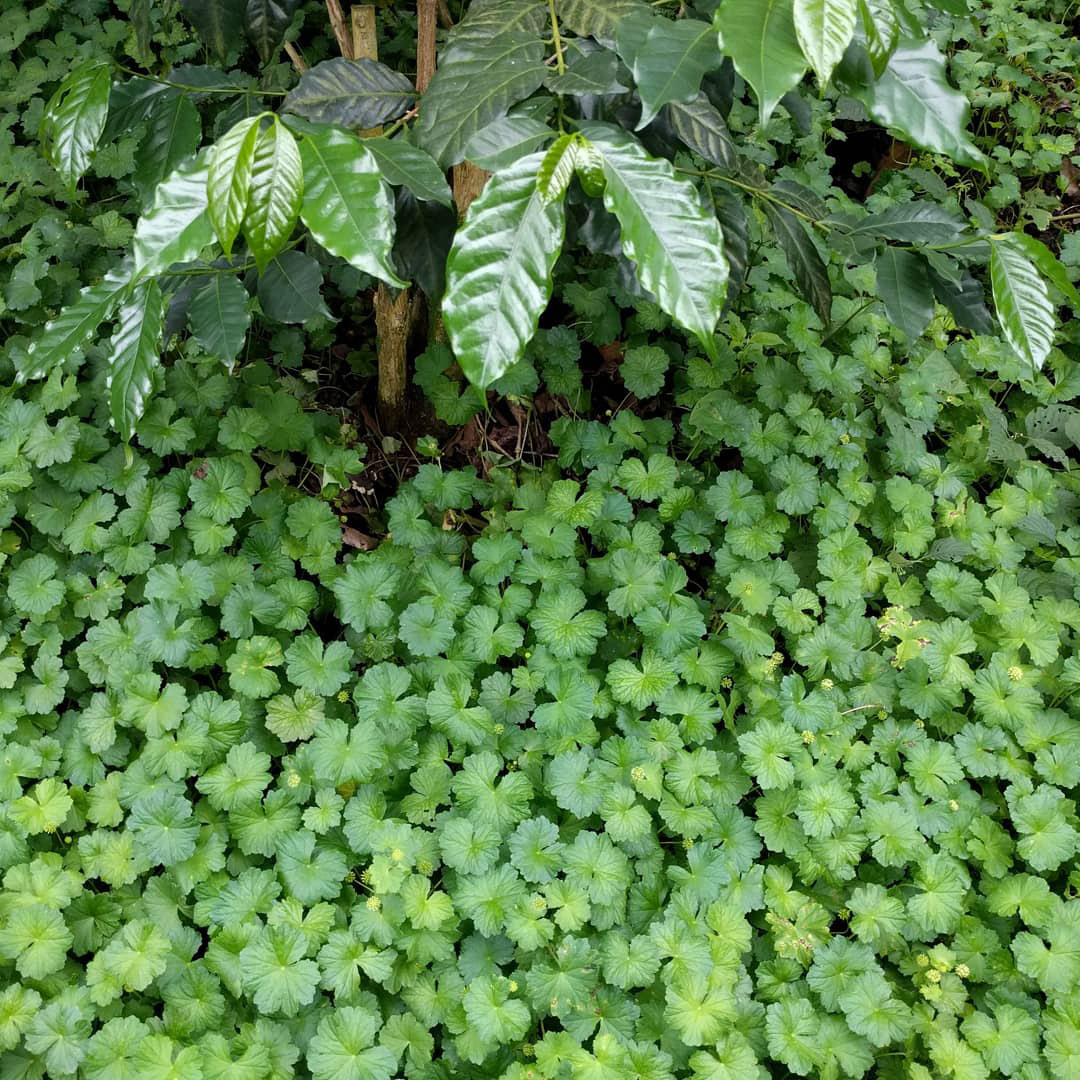
Organic Farming
Organic coffee cultivation in the form of a circular economy with organic fertilizers & pesticides! Numerous microorganisms, plants & animals settle around the coffee plants, which provide for nutrient-rich soils & a well-functioning circular economy.
Subscribe to the newsletter now!
✔ Weekly Offerlist ✔ Project & Market Updates ✔ Insights & Research Updates
✔ Weekly Offerlist
✔ Project & market updates
✔ Findings & Research Updates

